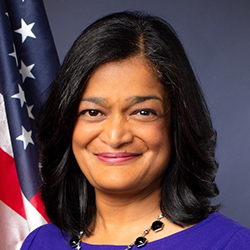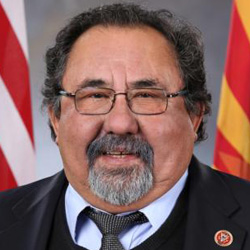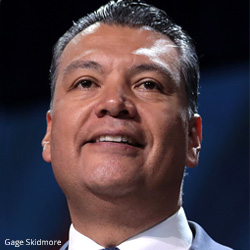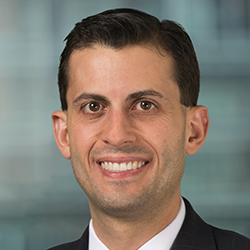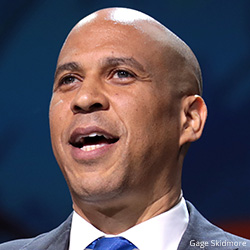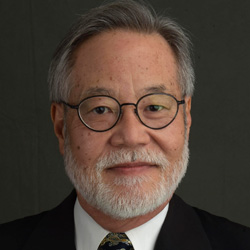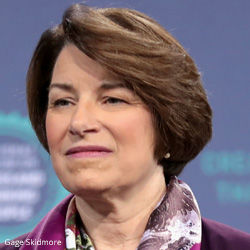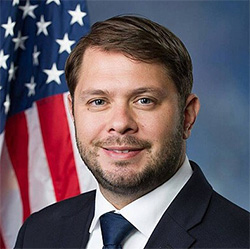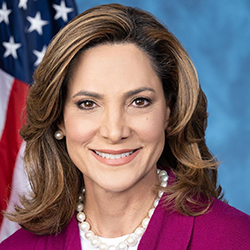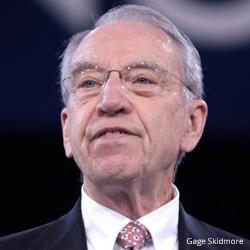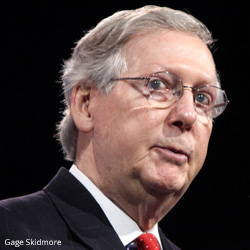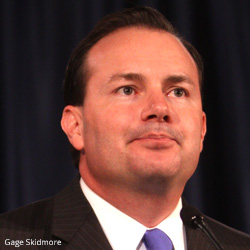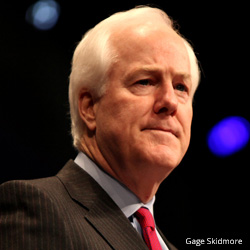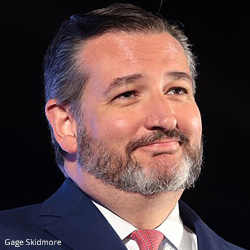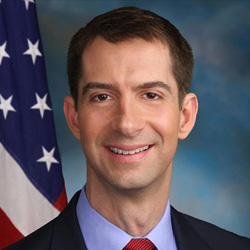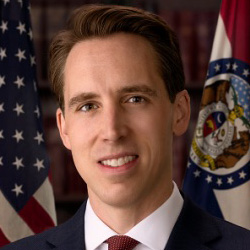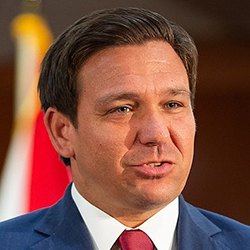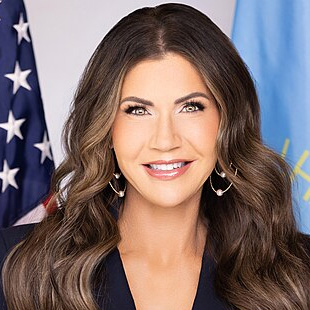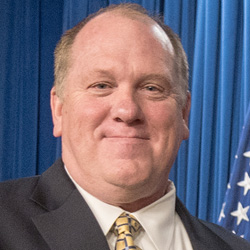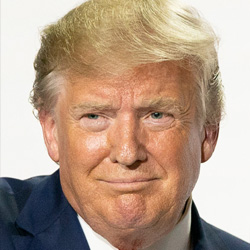Stephen Miller
Deputy Chief of Staff for Policy and Homeland Security Advisor to President Trump
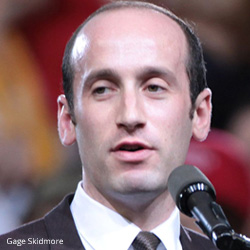
Outside of Donald Trump’s own family members, Stephen Miller has remained one of the more constant figures in the Trump universe, joining the Trump campaign before the 2016 Iowa caucuses, serving as White House senior policy adviser for the entirety of Trump’s first term in office, and returning for the second Trump administration as deputy chief of staff for policy and homeland security advisor. As the architect of many of Trump’s most hawkish immigration policies, Miller is arguably Trump’s most important strategist and advisor.
Miller, who grew up in Santa Monica, California, went to Duke University before entering politics as the press secretary for Congresswoman Michele Bachmann and later Congressman John Shadegg — two lawmakers with very conservative records on immigration. In 2009, Miller joined then-Senator Jeff Sessions’s staff and later played a central role in Sessions’s opposition to the Border Security, Economic Opportunity, and Immigration Modernization Act of 2013, a bipartisan piece of legislation that aimed to increase border security while also creating a pathway to citizenship for undocumented immigrants already in the country. Sessions and Miller led the ultimately successful effort to stop the bill on the premise that any pathway to citizenship would fundamentally hurt American workers.
Critics of Miller have asserted his immigration policies are motivated by racial antagonism. They point to interactions Miller allegedly had at Duke University with Richard Spencer, a white nationalist and leader of the alt-right (whom Miller has since denounced); more than two dozen columns Miller wrote for his college newspaper, including one that railed against multiculturalism; and a trove of Miller’s emails leaked by a Breitbart News editor that show an apparent affinity for ideas popular among white nationalists and praise for Camp of the Saints, a book known for its depiction of “white genocide.”
The Breitbart emails, released in 2019, were never disputed by the White House, where Miller continued to play a leading role in Trump’s immigration policy, including the travel ban for people from Muslim-majority countries, reducing the annual cap on refugees accepted into the country from 110,000 to 18,000, and the “zero tolerance” border security policy, which separated children from parents and mandated detention for everyone caught crossing the border illegally.
Though Miller remained central to Trump’s presidential decision-making during the first Trump administration, administration officials regularly leaked unflattering stories about Miller to the press, including allegations that he blocked the publication of internal Trump administration studies that showed refugees had a net positive effect on the national economy, and that Miller once told a White House colleague that he “would be happy if not a single refugee foot ever again touched America’s soil.”
As early as 2018, Miller had frequently floated the idea of using the president’s broad public health powers to restrict migration. When the COVID-19 pandemic struck in 2020, guided by the legal precedents Miller had previously explored, the Trump administration closed land borders, restricted international travel, and suspended issuance of green cards. On a private call, Miller told supporters that pausing new green cards was part of his broader plan to cut legal immigration and disrupt “chains of follow-on migration.”
During the Biden administration, Miller guided GOP strategy, briefing Republican lawmakers on how to oppose Biden’s proposed immigration policies and serving as an advisor for far-right candidates during the 2022 midterms. He also founded America First Legal (AFL), an organization which aims to pursue conservative goals through litigation. In April 2021, after the Biden administration eased the deportation of children and other vulnerable groups crossing the southern border, AFL joined with Texas Attorney General Ken Paxton to file a federal lawsuit aimed at forcing the administration to fully enforce Title 42 restrictions against all migrant groups.
For Trump’s second term in office, Miller is in a central role, and will serve as the main architect of Trump’s mass deportation plan. In December 2024, Miller told Fox News that in the first months of Trump’s new presidency they expect a full funding package from Congress for border security, which would include increases of ICE officers and border agents. Miller also said they expect “full funding for ICE beds, full funding for air and marine operations, full funding for all of the barriers and technology that you need to ensure there’s never another got-away entering this country.”
Miller, along with his AFL, have also threatened elected officials of so-called “sanctuary cities” with criminal prosecution should they interfere with Trump’s mass deportation plan.
SOURCES:
- Miller's AFL Threatens Elected Officials of Sanctuary Cities The Seattle Times — December 28, 2024
- Miller on Congressional Funding for Mass Deportation Fox News — December 8, 2024
- Miller’s MSG Speech Forbes — October 27, 2024
- Before Covid-19, Trump Aide Sought to Use Disease to Close Borders New York Times — May 3, 2020
- Trump’s Temporary Halt to Immigration Is Part of Broader Plan, Stephen Miller Says New York Times — April 24, 2020
- GOP zeroes in on Biden’s immigration record ahead of midterm elections CNN — January 14, 2022
- Stephen Miller Echoes White Nationalists In Leaked Anti-DACA Emails HuffPost — January 2020
- Trump's Newest Senior Adviser Seen as a White Nationalist Ally Mother Jones — December 2016
- Stephen Miller’s Affinity for White Nationalism Revealed in Leaked Emails Southern Poverty Law Center — November 2019
- Trump Administration Rejects Study Showing Positive Impact of Refugees The New York Times — September 2017
- How Trump Came to Enforce a Practice of Separating Migrant Families The New York Times — June 2018
- How Stephen Miller Single-Handedly Got the U.S. to Accept Fewer Refugees The New Yorker — October 2017
- Inside the confusion of the Trump executive order and travel ban CNN — January 2017
- Under secret Stephen Miller plan, ICE to use data on migrant children to expand deportation efforts The Washington Post — December 2019
- Stephen Miller Is Trying to Break the Asylum Process GQ — July 2019
- Stephen Miller set to brief House conservatives Politico — February 2021
- Trump group teams with Texas in challenge to Biden immigration policies Politico — April 2021

